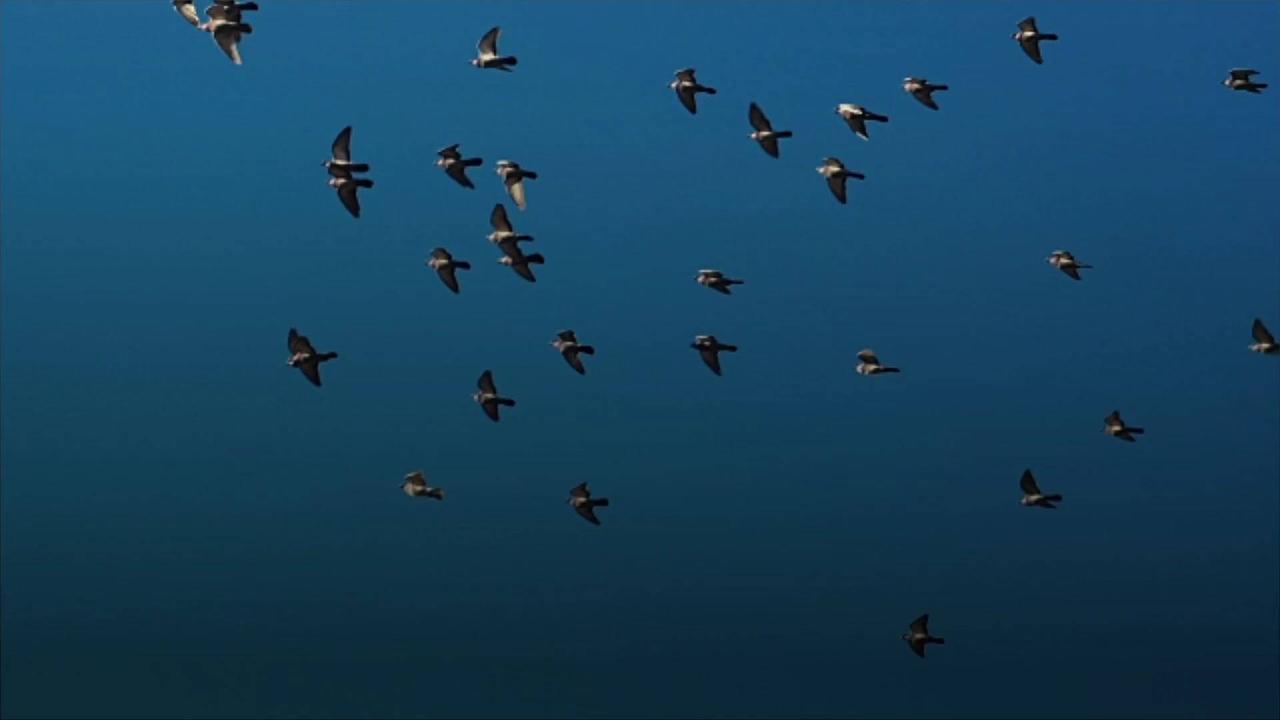Solar Storms May Impact Bird Migration, Study Suggests

Solar Storms May Impact Bird Migration, Study Suggests
Solar Storms , May Impact Bird Migration, , Study Suggests.
'Scientific American' reports that new research suggests that the same solar storms responsible for the Aurora Borealis can interfere with bird migration.
.
'Scientific American' reports that new research suggests that the same solar storms responsible for the Aurora Borealis can interfere with bird migration.
.
The study found that nocturnally-migrating birds are less likely to fly and more likely to drift following disturbances to the planet's magnetic field caused by solar storms. The study found that nocturnally-migrating birds are less likely to fly and more likely to drift following disturbances to the planet's magnetic field caused by solar storms. We really didn’t know what we would find at all, because at face value, [linking] space weather and bird migration sounds kind of wacky, Ben Winger, senior author and ornithologist at the University of Michigan, via 'Scientific American'.
But we do know that birds use the magnetic field, and the magnetic fields do get disrupted, so there ought to be a relationship, Ben Winger, senior author and ornithologist at the University of Michigan, via 'Scientific American'.
The research suggests that space weather can impact Earth's magnetic fields in ways that humans are unable to perceive.
The research suggests that space weather can impact Earth's magnetic fields in ways that humans are unable to perceive.
Humans don’t perceive these magnetic fields, so we don’t perceive a magnetic storm the way we would a weather storm, and so we have no idea that there’s something going on that’s a problem, whereas it turns out that birds are perceiving an actual disturbance, Ben Winger, senior author and ornithologist at the University of Michigan, via 'Scientific American'.
Humans don’t perceive these magnetic fields, so we don’t perceive a magnetic storm the way we would a weather storm, and so we have no idea that there’s something going on that’s a problem, whereas it turns out that birds are perceiving an actual disturbance, Ben Winger, senior author and ornithologist at the University of Michigan, via 'Scientific American'.
It suggests that these things happening in space that seem like they’re not relevant to Earth actually are, Ben Winger, senior author and ornithologist at the University of Michigan, via 'Scientific American'.
The study compared 23 years of radar data from across the U.S., finding a notable decrease in the number of birds migrating during increased geomagnetic activity.
The study compared 23 years of radar data from across the U.S., finding a notable decrease in the number of birds migrating during increased geomagnetic activity.
The team's findings were published on October 9 in the 'Proceedings of the National Academy of Sciences.'


![Study Warns California Continues to Face Threat of Megadrought [Video]](https://video.newsserve.net/300/v/20240619/1379010200-Study-Warns-California-Continues-to-Face-Threat-of.jpg)
![Chronic Sleep Loss May Cause Cellular-Level Changes and Impact Immune System [Video]](https://video.newsserve.net/300/v/20231002/1358668932-Chronic-Sleep-Loss-May-Cause-Cellular-Level-Changes.jpg)